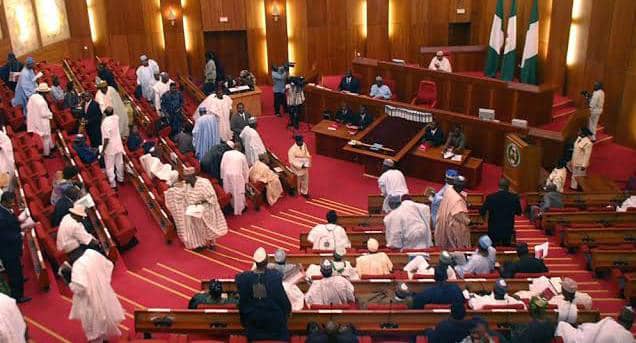A new private bill, titled “A Bill for an Act to substitute the annexure to Decree 24 of 1999 with a new governance model for the Federal Republic of Nigeria,” is currently before the National Assembly.
This bill, promoted by Dr. Akin Fapohunda, advocates for a return to a regional system of government and provides unconditional self-determination rights to all ethnic nationalities within Nigeria.
 Advertorial
Advertorial
The proposed bill, suggests significant changes to Nigeria’s current governmental structure.
Key proposals include scrapping the presidential system in favor of a parliamentary system, returning to a unicameral legislature, and allowing any section of the country to pursue self-determination if desired.
The bill states, “Every Ethnic Nationality and People in Nigeria has an unconditional right to self-determination within their delineated territories.”
It also emphasizes that sovereignty and authority for any reforms to the Central Federal Government should lie with all ethnic nationalities collectively and individually.
 Advertorial
Advertorial
Dr. Fapohunda’s proposal defines an “Ethnic Nationality or People” as a group with shared cultural traits, language, and common identity, inhabiting a contiguous territory.
The bill further recommends abolishing the current 36 states, reinstating a regional system, and ensuring equitable representation in both federal and regional governments.
Addressing the historical context, the bill criticizes the 1999 Constitution, derived from Decree 24 of 1999, as non-representative and imposed by the military without public consent.
The bill argues for a new constitution reflecting the consensus of the Nigerian people and based on a federal/regional system of governance.

The draft bill suggests that the National Assembly has the authority to amend or abrogate the existing constitution, deeming it an Act of the National Assembly.
It proposes that these amendments should be subject to a national referendum, with the new governance model to be implemented by October 1, 2024.
The bill asserts that, if necessary, the National Assembly can use the doctrine of necessity to address any legal issues for the country’s good governance.
The ultimate goal is to replace the current constitution with one that better reflects the aspirations and demands of Nigeria’s diverse ethnic groups.

















